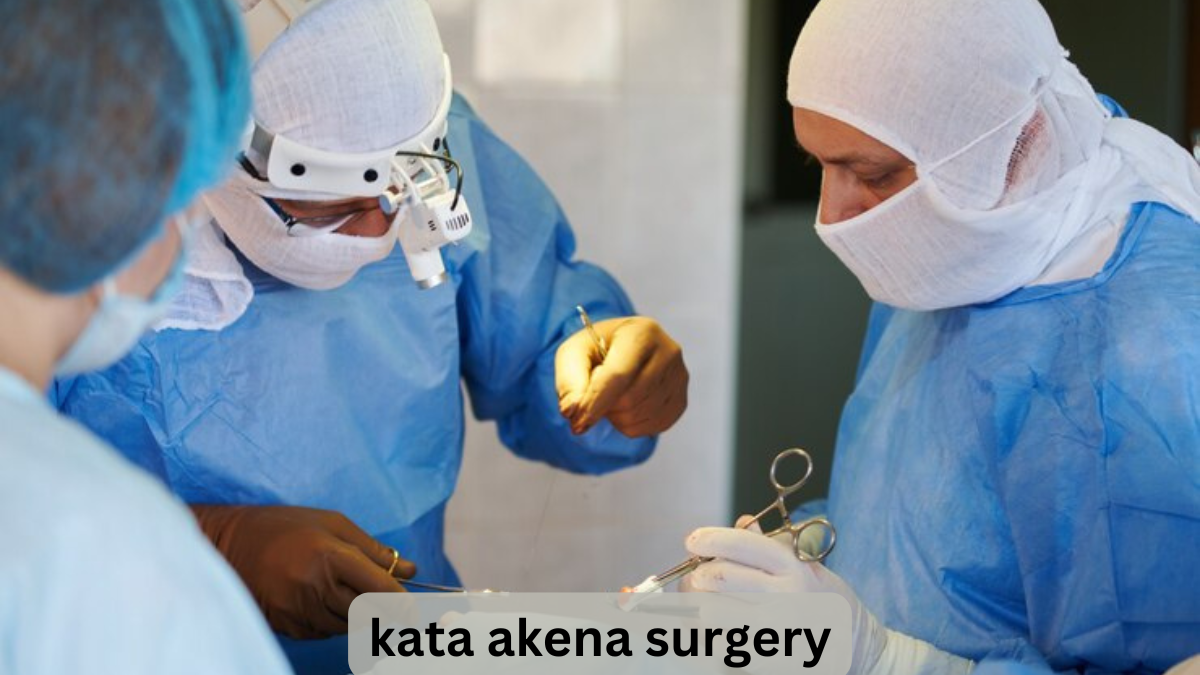Undergoing kata akena surgery can be a challenging experience, but with the right preparation and care, you can ensure a smooth and successful recovery. This comprehensive guide will walk you through everything you need to know about healing after your kata akena surgery, providing insights, tips, and essential information to support your healing journey.
Understanding Kata Akena Surgery: What You Need to Know
Kata akena surgery is a complex medical procedure that requires careful attention and dedicated post-operative care. Before diving into the recovery process, it’s crucial to understand the basics of the surgery and what to expect during your healing period.
Immediate Post-Surgery Considerations
The first few days after kata akena surgery are critical for your overall recovery. Patients typically experience:
- Moderate discomfort and potential swelling
- Limited mobility in the affected area
- Need for specialized care and close medical monitoring
The First Week of Recovery: Critical Care Steps
Managing Pain and Discomfort
Pain management is a crucial aspect of your kata akena surgery recovery. Your healthcare provider will likely recommend:
- Prescribed pain medications
- Cold or heat therapy
- Gentle movement exercises
- Adequate rest and sleep
Wound Care and Hygiene
Proper wound care is essential to prevent infections and promote healing:
- Follow your surgeon’s specific wound cleaning instructions
- Keep the surgical area clean and dry
- Watch for any signs of infection, such as increased redness, swelling, or unusual discharge
Nutrition and Healing: Fueling Your Recovery
Diet Recommendations
A balanced diet plays a significant role in your recovery after kata akena surgery:
- Consume protein-rich foods to support tissue repair
- Stay hydrated with water and nutritious fluids
- Include fruits and vegetables to boost your immune system
- Avoid processed foods and excessive sugar
Supplements and Healing
Discuss with your healthcare provider about potential supplements that might support your recovery:
- Vitamin C for wound healing
- Zinc for immune support
- Omega-3 fatty acids to reduce inflammation
Physical Recovery and Rehabilitation
Gentle Movement and Exercise
Gradual reintroduction of movement is crucial after kata akena surgery:
- Follow your physiotherapist’s recommended exercise plan
- Start with gentle, supervised movements
- Avoid strenuous activities during initial recovery
- Listen to your body and don’t push beyond comfort levels
Monitoring Progress
Regular check-ups with your healthcare provider are essential:
- Attend all scheduled follow-up appointments
- Discuss any concerns or unusual symptoms
- Track your healing progress
Emotional Well-being During Recovery
Mental Health Considerations
Recovery isn’t just physical – your emotional health matters too:
- Be patient with yourself
- Seek support from family and friends
- Consider joining support groups
- Practice stress-reduction techniques like meditation
Common Challenges and How to Overcome Them
Potential Recovery Complications
While most kata akena surgery recoveries are smooth, be aware of potential challenges:
- Delayed healing
- Unexpected pain
- Mobility restrictions
- Emotional stress
Returning to Normal Activities
Gradual Reintegration
Returning to your regular routine takes time:
- Follow medical advice on resuming work
- Gradually increase activity levels
- Be mindful of your body’s signals
- Don’t rush the recovery process
Frequently Asked Questions (FAQs)
How long does recovery from kata akena surgery typically take?
Recovery duration varies depending on individual factors and the specific procedure, but most patients can expect a full recovery within 6-8 weeks.
What are the signs of potential complications?
Watch for persistent fever, excessive pain, wound drainage, or significant swelling. Contact your healthcare provider immediately if you experience these symptoms.
Can I drive after kata akena surgery?
Driving restrictions depend on the specific procedure and your individual recovery. Always consult your surgeon before resuming driving.
How can I prevent infection during recovery?
Maintain proper wound hygiene, take prescribed antibiotics, eat a nutritious diet, and attend all follow-up appointments.
When should I contact my healthcare provider?
Reach out if you experience unusual pain, signs of infection, fever, or if your recovery seems significantly different from what was explained to you.
Conclusion
Recovering from kata akena surgery is a journey that requires patience, care, and support. By following professional medical advice, maintaining a positive attitude, and taking care of both your physical and emotional well-being, you can navigate this challenging period successfully.
Remember, every individual’s recovery is unique. Stay in close communication with your healthcare team, listen to your body, and be kind to yourself throughout the healing process.
